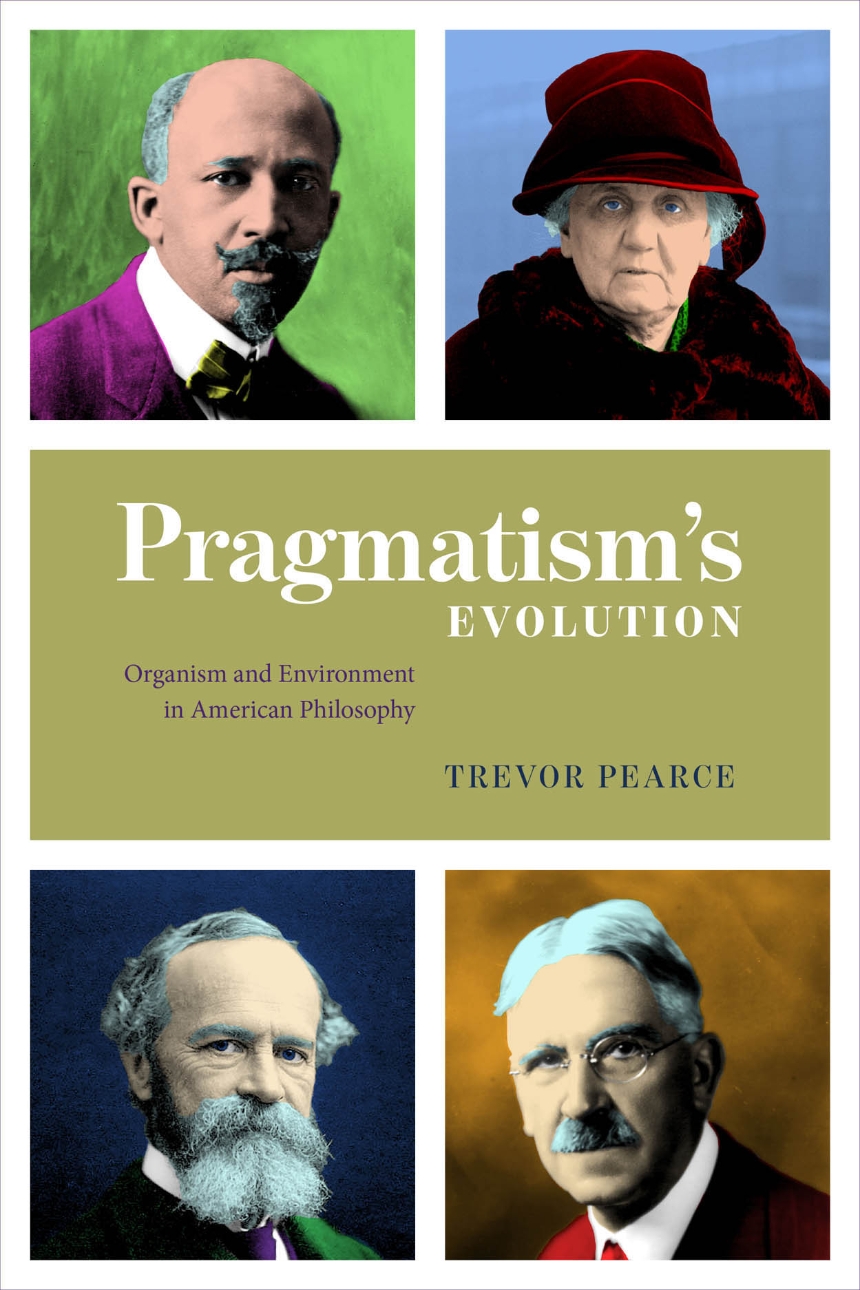Pragmatism’s Evolution
Organism and Environment in American Philosophy
9780226719917
9780226719887
9780226720081
Pragmatism’s Evolution
Organism and Environment in American Philosophy
Publication supported by the Bevington Fund
In Pragmatism’s Evolution, Trevor Pearce demonstrates that the philosophical tradition of pragmatism owes an enormous debt to specific biological debates in the late 1800s, especially those concerning the role of the environment in development and evolution. Many are familiar with John Dewey’s 1909 assertion that evolutionary ideas overturned two thousand years of philosophy—but what exactly happened in the fifty years prior to Dewey’s claim? What form did evolutionary ideas take? When and how were they received by American philosophers?
Although the various thinkers associated with pragmatism—from Charles Sanders Peirce to Jane Addams and beyond—were towering figures in American intellectual life, few realize the full extent of their engagement with the life sciences. In his analysis, Pearce focuses on a series of debates in biology from 1860 to 1910—from the instincts of honeybees to the inheritance of acquired characteristics—in which the pragmatists were active participants. If we want to understand the pragmatists and their influence, Pearce argues, we need to understand the relationship between pragmatism and biology.
Although the various thinkers associated with pragmatism—from Charles Sanders Peirce to Jane Addams and beyond—were towering figures in American intellectual life, few realize the full extent of their engagement with the life sciences. In his analysis, Pearce focuses on a series of debates in biology from 1860 to 1910—from the instincts of honeybees to the inheritance of acquired characteristics—in which the pragmatists were active participants. If we want to understand the pragmatists and their influence, Pearce argues, we need to understand the relationship between pragmatism and biology.
384 pages | 12 halftones, 5 tables | 6 x 9 | © 2020
Biological Sciences: Evolutionary Biology
History: History of Ideas
Philosophy: American Philosophy
Reviews
Table of Contents
List of Tables and Figures
Abbreviations of Manuscript Sources
Abbreviations of Scholarly Editions
Note to the Reader
Abbreviations of Manuscript Sources
Abbreviations of Scholarly Editions
Note to the Reader
Introduction
Chapter 1: The Metaphysical Club and the Origin of Species
Chapter 2: Products of the Environment: Spencer’s Challenge
Spencerian Evolution
Spencerian Psychology
Spencerian Sociology
Spencerian Psychology
Spencerian Sociology
Chapter 3: Evolution at School: Educating a New Generation
Evolution in College
Evolution in Graduate School
Teaching Evolution
Evolution in Graduate School
Teaching Evolution
Chapter 4: “Hegelianism Needs to Be Darwinized”: Evolution and Idealism
Hegel and Evolution
The Organism-Environment Dialectic
Evolutionary Strivings
The Organism-Environment Dialectic
Evolutionary Strivings
Chapter 5: Weismannism Comes to America: The Factors of Evolution
The Reception of Weismann
Peirce and Neo-Lamarckism
Dewey and the Spencer-Weismann Debate
Peirce and Neo-Lamarckism
Dewey and the Spencer-Weismann Debate
Chapter 6: Pragmatist Ethics: Evolution, Experiment, and Social Progress
Fieldwork in Ethics
Organism and Environment in Social Reform
Social Science and Social Evolution
Eugenics and Civilization
Organism and Environment in Social Reform
Social Science and Social Evolution
Eugenics and Civilization
Chapter 7: Pragmatist Logic: Evolution, Experiment, and Inquiry
The “Natural History” Approach
Evolutionary Experimentalism
Evolutionary Experimentalism
Conclusion
Acknowledgments
Index
Index
